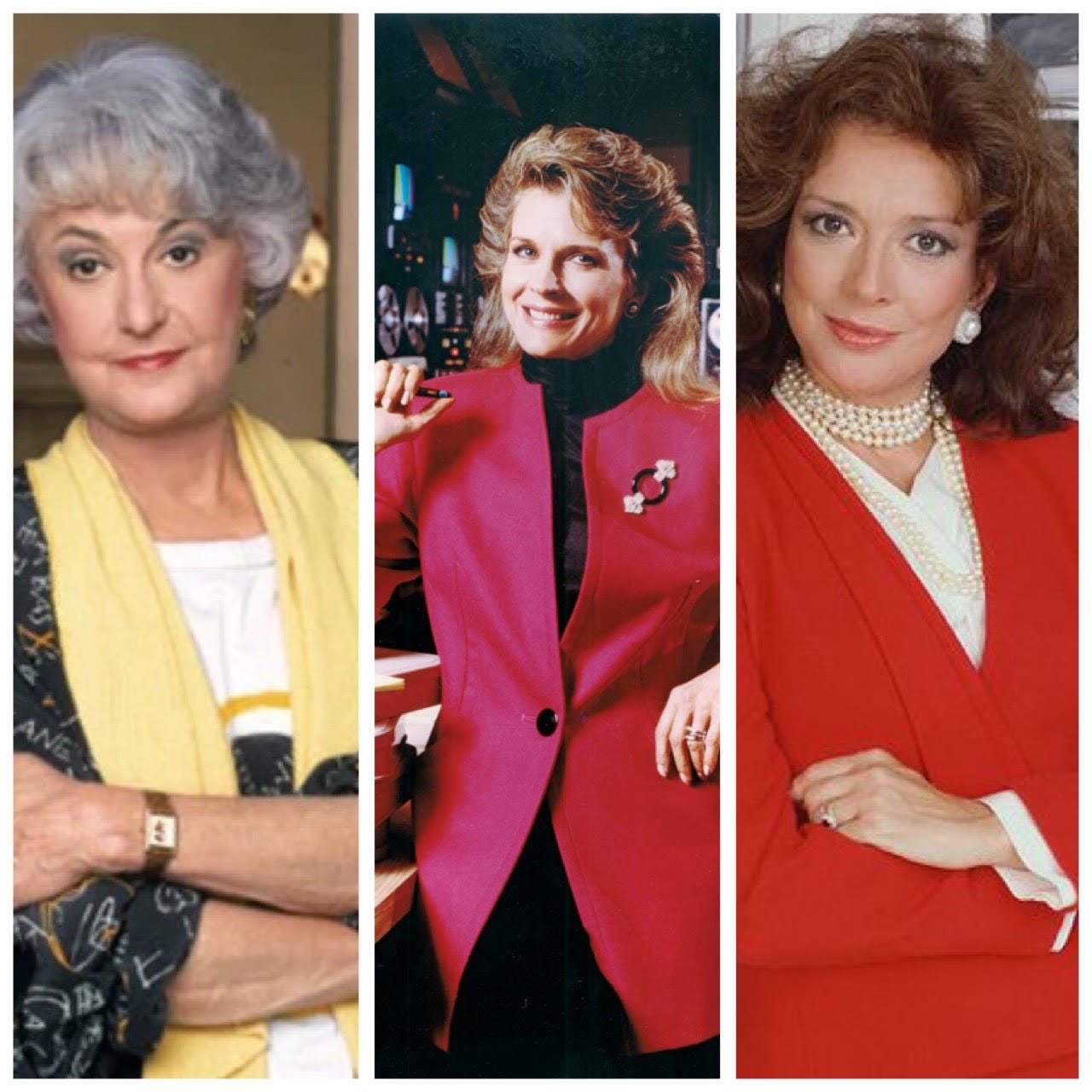I often say that I didn’t have any choice but to become a feminist, given the women in television I looked up to during my most formative years. I grew up in the Golden Age of women in television. When I was in high school, my role models were Murphy Brown and Julia Sugarbaker and Dorothy Zbornak. I remember Murphy’s feud with then Vice President Dan Quayle about single mothers. I remember the episode of Designing Women when they tackled the AIDS crisis right alongside giving teens condoms in school. I remember when Dorothy told off her male doctor for ignoring her symptoms. Shows centering women in the late 80’s and early 90’s that were dealing with topics that are often considered taboo, even today. And they were popular. Each of these shows were among the highest rated when they were airing.
So many “strong female characters” are often just characters who behave the ways men typically do. Or they lose most of what makes them interesting as soon as a man comes on the scene (I’m looking at you, Deadpool - you did Vanessa so dirty). When Gillian Flynn has Amy describe “the cool girl” in Gone Girl, she is pretty much giving the typical “strong female character.” One of the guys, but hot and DTF.
Let me be clear, there is nothing wrong with being hot and sexually available. But what I saw with the women in Murphy Brown and Designing Women and The Golden Girls was so much more. They were people. They had close relationships with other women. They ate cheesecake together. They would build up one another. They had jobs, they had families, they had full lives. Their strength wasn’t in their physicality or their cutting wit or their ability to succeed in a world dominated by men, though they did all of those things. No, their real strength was in being complete people.
For a while, I haven’t seen a lot of these characters. It’s not that they haven’t existed, but they haven’t been at the center of many shows. But as I’m thinking about some of my favorite shows from the past couple of years, I feel like we might be entering a new age of really excellent female characters.
With season 2 of Hacks premiering later this year, I’ve been rewatching the first season and goodness. Here are some fully fleshed out women. Both Deborah Vance and Ava feel like completely real, strong female characters. I love the way feminism is explored from the perspective of an older, successful female comic and also a young 20-something female comedy writer. The way the show explores their different expectations for how women should be treated is so smart, and I find myself going back and forth between agreeing with both of them (sometimes wanting to be pragmatic and sometimes wanting to be idealistic).
Last year we also saw Mare of Easttown. We have a woman as a detective, so she has an element of toughness to her, but “lady cop” isn’t her whole personality. We see her as a mother and a grandmother and a daughter and a friend. Mare is a whole person, which is why she resonated with audiences.
And because the first half of season 4 of Ozark premiers on Friday, I have also been rewatching the first seasons of that. While this show doesn’t necessarily center women (it’s obstensibly about Marty Byrde more than anyone else), I am impressed again by the female characters in this show. Wendy, Ruth, Darlene, Helen - all are interesting, smart, funny, powerful women. I love the way these women are written with agency and drive, even if that drive is to do a lot of truly heinous things.
I don’t know if we’re quite back to the glory days of my teenage years, but I feel like we’re making progress. The days of the prestige drama featuring the bad man seems to be waning in favor of more shows with women as the lead characters, or if not the leads, not mere plot fodder for the men.
All I know is that the Alise who was pushed toward feminism by Jean Smart in Designing Women in 1989 is happy to be further radicalized by the same woman in Hacks in 2022. Strong female characters give us strong women, and we need as many of those as we can get.




